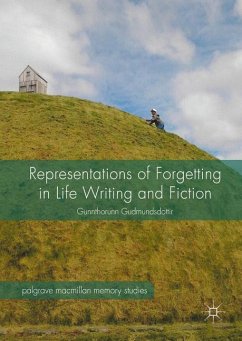
The COVID-19 Pandemic and Memory
Remembrance, commemoration, and archiving in crisis
Herausgegeben: Fridman, Orli; Gensburger, Sarah

PAYBACK Punkte
53 °P sammeln!
This book offers a platform for the analysis of commemorative and archiving practices as they were shaped, expanded, and developed during the Covid-19 lockdown periods in 2020 and the years that followed. By offering an extensive global view of these changes as well as of the continuities that went with them, the book enters a dialogue with what has emerged as an initial response to the pandemic and the ways in which it has affected memory and commemoration.The book aims to critically and empirically engage with this abundance of memory to understand both memorialization of the pandemic and co...
This book offers a platform for the analysis of commemorative and archiving practices as they were shaped, expanded, and developed during the Covid-19 lockdown periods in 2020 and the years that followed. By offering an extensive global view of these changes as well as of the continuities that went with them, the book enters a dialogue with what has emerged as an initial response to the pandemic and the ways in which it has affected memory and commemoration.
The book aims to critically and empirically engage with this abundance of memory to understand both memorialization of the pandemic and commemoration during the pandemic: what happened then to commemorative practices and rituals around the world? How has the Covid-19 pandemic been archived and remembered? What will remembering it actually entail, and what will it mean in the future? Where did the Covid memory boom come from? Who was behind it, how did it emerge, and in what socialconfigurations did it evolve?
The book aims to critically and empirically engage with this abundance of memory to understand both memorialization of the pandemic and commemoration during the pandemic: what happened then to commemorative practices and rituals around the world? How has the Covid-19 pandemic been archived and remembered? What will remembering it actually entail, and what will it mean in the future? Where did the Covid memory boom come from? Who was behind it, how did it emerge, and in what socialconfigurations did it evolve?














